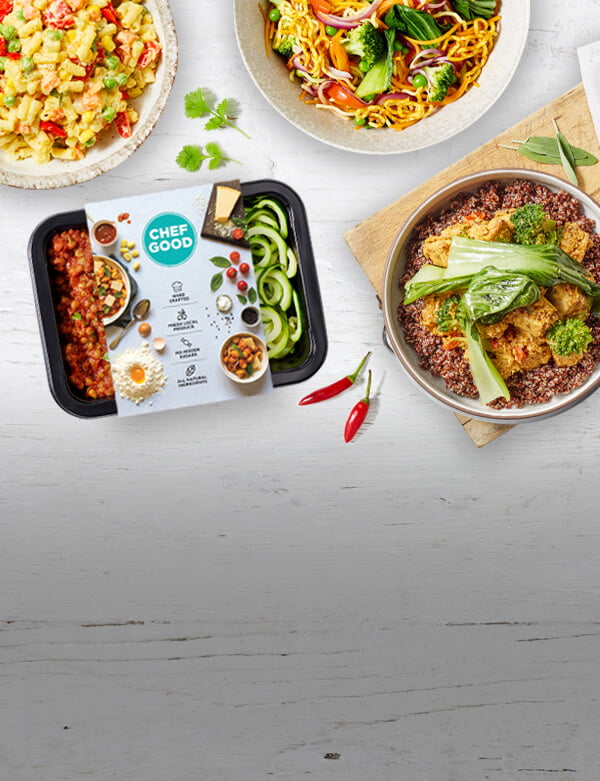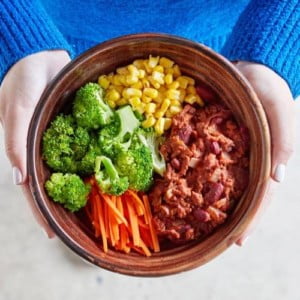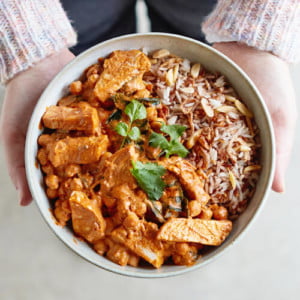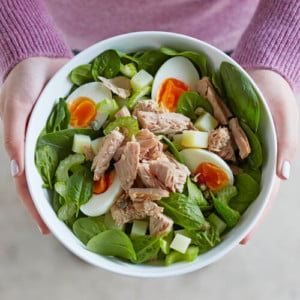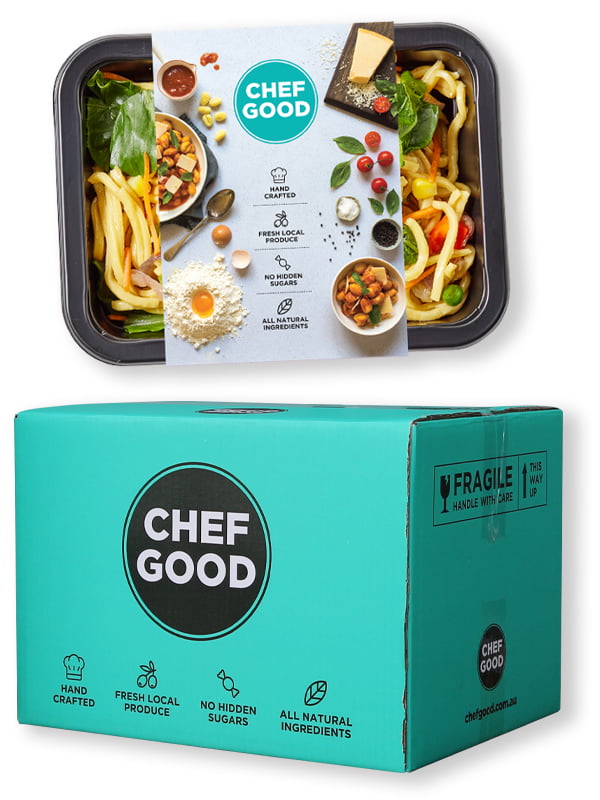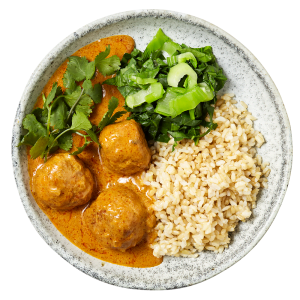Daily Calorie Intake For Weight Loss


If you’re counting calories for weight loss, part of the journey is to know how many calories to eat a day to help shed the kilos. Reducing the number of calories you eat a day can help with weight loss—assuming you have no underlying health issues.
To keep hunger at bay and energy and mood in check, make the most of your low calorie food choices by planning meals and spreading calories across the day. So how many daily calories are ideal for weight loss? Assuming you’re in good health with no underlying health issues, below serves as a general guide for calorie intake per day, which varies by age and gender.
- 19-30 years: females need 2,000-2,400 calories per day; males need 2,400-3,000 calories per day.
- 31-59 years: females need 1,800-2,200 calories per day; males need 2,200-3,000 per day.
- 60 years and above: Females need 1,600-2,000 per day; males need 2,000-2,600 calories per day.
Besides age and gender, your daily calorie needs also depends on bone structure, body size, metabolic health and how much daily activity you do. Even though many factors can impact weight loss, in general, to lose weight, you need to eat less calories than you burn.
Choosing nutrient-rich food and following a balanced calorie controlled diet will achieve long-term weight-loss goals. While fad diets radically restrict calorie intake per day and you may experience weight loss in the short-term, this weight loss is not sustainable for the long-term and not a healthy way of life. Fad diets can also slow down your metabolic rate which means keeping weight off and maintaining weight will be harder in the long-term.
Amount Of Daily Calories For Weight Maintenance
Even for a low calorie diet, a balanced approach is key for long term weight maintenance. Whether you’re at your ideal weight or looking to shed kilos, a slow, steady and balanced approach is the most sustainable for maintaining a healthy weight. Choosing healthy foods and following a balanced diet which includes macro nutrients and whole foods, while limiting processed and refined foods, is ideal for healthy weight loss as well as weight maintenance.
While weight maintenance depends on the amount of daily calories you consume, it also depends on your metabolic rate, general health and lifestyle. All things considered, the general rule for weight maintenance is to make healthy food choices in line with broad guidelines for daily calorie intake for women and men.
Females:
- 19-30 years: females need 2,000-2,400 calories per day
- 31-59 years: females need 1,800-2,200 calories per day
- 60 years and above: females need 1,600-2,000 per day
Males:
- 19-30 years: males need 2,400-3,000 calories per day
- 31-59 years: males need 2,200-3,000 per day
- 60 years and above: males need 2,000-2,600 calories per day

Amount Of Calories You Should Eat In A Day
Depending on your weight loss goals, ideal weight and lifestyle, the amount of calories you should eat a day depends on you entirely. If you’re looking to lose weight, you need to eat less calories a day than your body needs (as per the broad guidelines for women and men above). If you’re looking to maintain your weight, you should eat the recommended calories per day based on your gender and age (as outlined above). And if you’re looking to bulk up or gain weight, you need to eat more calories than you’re burning up. Whatever your body goals, always make healthy food choices and opt for unprocessed whole foods whenever possible with no hidden sugars, added nasties and preservatives.
Calories, Kilojoules And Kilocalories: A Brief Explanation
Healthy weight loss is dependent on many factors. A good base is having an understanding what you read on food labels i.e. calories (cal) v kilocalories v kilojoules (kJ). Depending where you live and where the food product is manufactured, the nutritional information and measure of energy found on food labels depends on the laws of the country of manufacture.
Calories: A calorie is a unit to measure energy. When talking about food calories, calories are the amount of energy in food or drinks. While we need energy from food for our body to function, if we consume more energy than our body needs, we gain weight. This is where balanced low-calorie meals and healthy meal plans, exercise and an active lifestyle play a part.
Kilocalories: When it comes to food and nutrition, a kilocalorie (kcal) is the same as a calorie (cal). A kilocalorie is a scientific term created to denote large calories versus small calories. But these terms are not used in nutrition, only for science. So when you see kcal or cal on a food label, it’s the same thing!
Kilojoules: Kilojoules (kJ) are often used interchangeably with calories. But while both are units to measure energy in food, each measures food and drinks in different ways (like kilometres and miles; both measure distance but in different ways). In essence, 1 calorie or kcal equals 4.18 kilojoules (kJ). So if you’re reading food labels and only see a reference to kJ, divide it roughly by 4 to get to the approximate calorie count of that food or drink.
A Balanced Diet Of Calories
Weight loss should be approached in a healthy way to avoid menu boredom and metabolic slowdown. Mood and energy levels are also impacted by what you eat! This means a balanced diet of calories is crucial. A balanced diet includes all food groups so that your body is getting the necessary macro nutrients, minerals and vitamins even if you’re on a calorie-controlled eating program. Meals made up of smaller portion sizes packed with balanced and nutritious foods can maximise taste, satisfy hunger and help you lose weight.
Calorie surplus
A calorie surplus is when you’re eating more calories than you’re burning up. When muscle building and weight gain is the goal, eating more calories than you need every day is a means to an end. But for many trying to lose weight, a calorie surplus is the starting point in knowing you need to cut down on your daily intake of calories to lose weight.
Type Of Healthy Foods To Add In Your Diet: Healthy Meal Plans, Shopping Lists & Meal Prep
To lose weight healthily, you need to not only reduce your daily calorie intake but also make nutritional food choices that keep you feeling full for longer without compromising on taste. Here are some ideas to help with meal plans, shopping lists and meal prep.
- Healthy proteins include whole eggs, salmon, tuna, lean meats and chicken breast, as well as plant protein like tofu, soy, lentil and chickpeas. High protein and low carb diets that are balanced with well-designed menu plans are a sustainable and enjoyable way to lose weight.
- Add satisfying and tasty foods to your meals like beans, legumes, whole grains, brown rice, quinoa, and chia seeds. Healthy high nutrition plate fillers!
- Spice up dishes with the likes of black pepper, chilli and cinnamon.
- Substitute unhealthy fats (which can cause high cholesterol) with heart-healthy fats like avocado and olive oil.
- Reduce sugary drinks and drink more water.
- Choose veggies like leafy greens, broccoli, cauliflower, Brussel sprouts, cabbage, celery, zucchini, sweet potatoes and root vegetables. Opt for fresh fruits like grapefruit, raspberries, blueberries, and watermelon. Balanced vegetarian and vegan meal plans are also effective for weight less if portions and calories are controlled.
- Eat less processed food and refined carbs.
- Keep your metabolism going with healthy snacks like hearty soups and scrumptious salads, fresh fruit and veggies, hummus dips, low-fat cottage cheese, nuts, Greek yogurt, peanut butter, and dark chocolate.
High Calorie Foods To Avoid
Processed and refined foods can cause you to gain weight because they are generally high in calories. Often laden with unhealthy hidden sugars, high salt content, and preservatives, processed foods, fast foods and takeaways are calorie-dense choices. This is why reading food labels is important to work out what you’re eating or drinking. Typical high-calorie foods to avoid as a regular way of eating include:
- Snacks like potato chips and ice cream
- Sweet confectionery like pastries, lollies, candy, chocolates, cakes and biscuits
- Fast food like French fries, tortillas, and pizza
- Sugary drinks, most fruit juices, calorie-dense smoothies and coffee drinks, and most types of alcohol (especially beer)
- White bread and other highly refined foods and refined carbohydrates. These can cause spikes in blood sugar, and make you feel hungry sooner. Other whole grain, whole meal, and rye breads are low GI and release sugar slowly which minimises spikes in blood sugar and keeps you feeling full for longer.
Medical Benefits
There are many medical benefits of maintaining a healthy weight. While obesity is often considered an extreme end for being overweight, it is a common health problem across the world today thanks to time-poor food choices and quick and easy fast food options. Measured by BMI (Body Mass Index), obesity is determined by body fat percentage. Besides genetics, diet and lifestyle play a big role, among other factors.
The road to being overweight (well before obesity) is often paved with a lifestyle of fast foods and highly processed meals, with no diet plan in place. Besides being a cosmetic issue, weight issues can fast become health problems. Common health issues that may result from being overweight include:
- Heart disease and stroke
- Type 2 diabetes
- Certain cancers
- Sleep apnea
- Osteoarthritis
- Digestive problems
Long Term Benefits
The list of long-term benefits of healthy eating and a healthy weight is endless. Your weight and waste size heavily impacts on your health. Being a healthy weight can reduce the risk of heart disease and stroke, type 2 diabetes as well as certain cancers. By being a healthy weight you also have a greater chance of avoiding health issues like infertility, gallstones, arthritis, asthma, snoring and cataracts.
In essence, maintaining a healthy weight’s greatest long-term benefit is the benefit of a longer life. The Mediterranean diet is a proven example of how food lifestyle extends lifespan. The long-term body benefits of a diet packed with whole foods, plant-based food choices, healthy fats and less processed foods and snacks, is a recipe for good health.
Activity Factor And Weight Loss
Low calorie food and good food choices are part of a bigger picture when it comes to a healthy weight. Activity level and lifestyle are also major contributors to achieving and maintaining a healthy weight. Because besides the calories you eat, you can speed up weight loss by exerting energy. If you burn more calories than you eat daily, you’ll lose weight. Burning calories is part and parcel of exercise and an active lifestyle. From walking your dog, to a gym workout, to gardening, to playing with an active toddler, an active lifestyle helps burn calories and supports weight loss.

